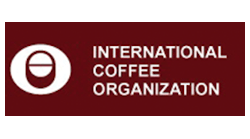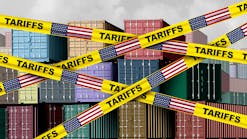ICO: What Will Happen If Coffee Is Not Sustainable?
Source International Coffee Organization
London, 23 May 2018 – The International Coffee Organization (ICO) held a coffee sustainability workshop on 21 May as one of the highlights of the 1st Milano Coffee Festival – a new event in Italy focusing on coffee in all its forms and across the entire supply chain.
Attended by over 10,000 visitors, from consumers and connoisseurs to industrial or artisanal roasters and manufacturers of coffee-making machinery and equipment, the Milano Coffee Festival was held at BASE, in the Milan design district, and promoted by the Coffee Promotion Consortium and Ucimac, with HostMilano-Fieramilano, in collaboration with the Specialty Coffee Association.
ICO Head of Operations, Mr Gerardo Patacconi, moderated proceedings as well as giving the keynote address in which he set out the ICO’s role in the coffee sector. Mr Patacconi stressed the key issues affecting the future of coffee – from prices and the social economic impact on the livelihood of small coffee growers, to the environmental impact of agronomic practices, processing/roasting, packaging, distribution and consumption.
Mr Hora Fikru Amenu, Input Supply and Quality Control Director at the Ethiopian Coffee and Tea Development and Marketing Authority, reported on how changes in the price of coffee versus inputs affected the coffee community in Ethiopia. He further presented the role of the government in assuring a sustainable future for its key export sector through promoting sustainable agriculture and marketing practices.
Mr Andrea de Marco, the Technical Coordinator of the UNIDO-sponsored project Improving the Sustainability and Inclusiveness of the Ethiopian Coffee Value Chain through Private and Public Partnership, highlighted the successful public-private partnership involving the Ethiopian Government and growers, the Italian Cooperation, UNIDO and Illy coffee. Mr de Marco reported that this project was building local institutional capacity, as well as assisting thousands of coffee growers to apply sustainable agronomic practices and social impact solutions.
In his intervention, Mr Niels Haak, Senior Manager Sustainable Coffee at Conservation International (CI), stressed how CI and the Sustainable Coffee Challenge was supporting the sector through provision of industry-wide solutions, centred on the need to assist the 25 million coffee growers worldwide and the coffee sector as a whole.
Ms Laura Traldi, journalist at D la Repubblica, reported on coffee sustainability from the perspective of consumers and wider society. She highlighted how the international media placed emphasis on the environmental impact of capsules and coffee cups, while neglecting the true social conditions of small coffee producers and the impact of climate change as critical sustainability issues.
All speakers agreed on the importance of working together through existing public and private sector platforms and initiatives, such as the ICO, in order to attract funds, identify and apply technological, management and governance solutions. Such collaboration was crucial to ensure a sustainable future for coffee.
About the International Coffee Organization
The International Coffee Organization (ICO) is the main intergovernmental organization for coffee, bringing together exporting and importing Governments to tackle the challenges facing the world coffee sector through international cooperation. Our Members represent the Governments of 98% of the world’s coffee producing countries and 83% of consuming countries.
We endeavour to make a positive and practical contribution to the development of a sustainable world coffee sector and to reducing poverty through the following three Strategic Objectives:
• Delivering world-class data, analysis and information to the industry and policy-makers
• Providing a forum for dialogue between and within the public and private sectors
• Facilitating the development of projects and promotion programmes through public-private partnerships.
More information is available at: www.ico.org






